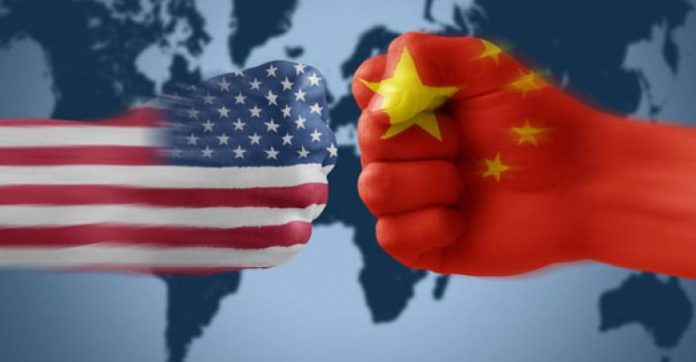BEIJING/WASHINGTON: The U.S. trade war with China is “on hold” after the world’s largest economies agreed to drop their tariff threats while they work on a wider trade agreement, US Treasury Secretary Steven Mnuchin said on Sunday.
Mnuchin and US President Donald Trump’s top economic adviser, Larry Kudlow, said the agreement reached by Chinese and American negotiators on Saturday set up a framework for addressing trade imbalances in the future.
“We are putting the trade war on hold. Right now, we have agreed to put the tariffs on hold while we try to execute the framework,” Mnuchin said while speaking to the media.
On Saturday, Beijing and Washington said they would keep talking about measures under which China would import more energy and agricultural commodities from the United States to close the $335 billion annual US goods and services trade deficit with China.
During an initial round of talks earlier this month in Beijing, Washington demanded that China reduce its trade surplus by $200 billion. No dollar figure was cited in the countries’ joint statement on Saturday.
Commerce Secretary Wilbur Ross planned to go to China, Mnuchin and Kudlow said.
“He’s going to be looking into a number of areas where we’re going to have greatly significant increases,” including energy, liquefied natural gas, agriculture and manufacturing, Kudlow said in a statement.
Mnuchin said the United States expects to see a big increase of between 35 per cent and 40 per cent in agricultural exports to China and a doubling of energy purchases over the next three to five years.
“We have specific targets. I am not going to publicly disclose what they are. They go industry by industry,” Mnuchin said.
Last year, the United States had a $375.2 billion trade deficit with China, with populist politicians blaming the Asian powerhouse for the leeching of American jobs over the last few decades.
Washington reportedly had demanded the deficit be slashed by at least $200 billion by 2020. However, the joint statement held no indication that China had assented to that target.
It said both sides had agreed on “meaningful increases” in US agriculture and energy exports. Liu said the new trade cooperation would extend to medical care, high-tech products, and finance, according to Xinhua.
They also agreed to strengthen cooperation on protecting intellectual property — a long-standing source of US discontent. The two countries, their economies enormously interlinked, opened the delicate negotiations a few weeks ago.
Trump had threatened China with tariffs on up to $150bn of imports, prompting Beijing to warn it would target US agricultural exports, aircraft, and even whiskey.
Beijing and Washington have now agreed to keep talking about measures under which China would import more energy and agricultural commodities from the United States to close the $335 billion annual U.S. goods and services trade deficit with China.

























